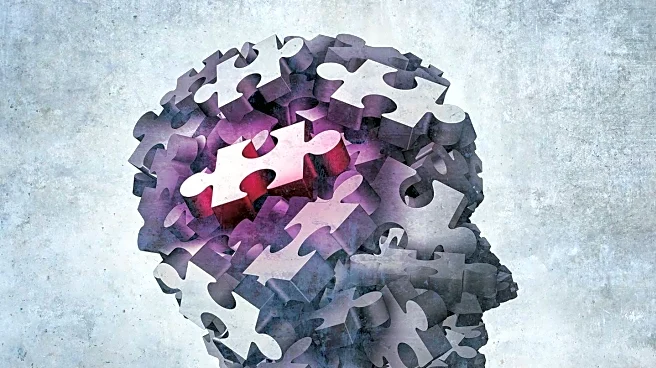What's Happening?
Schizophrenia is often considered one of the most devastating mental illnesses due to its impact on individuals' lives and the widespread misconceptions surrounding it. Affecting approximately 0.32% of the global population, schizophrenia is characterized by symptoms such as delusions, hallucinations, and disorganized thinking. The disorder typically manifests in early adulthood, disrupting individuals' ability to function normally. Despite its prevalence, schizophrenia is heavily stigmatized, with societal perceptions often associating it with violence and unpredictability. Experts emphasize the need for a more compassionate understanding of the disorder, highlighting the importance of early intervention and comprehensive treatment.
Why It's Important?
The stigma and misconceptions surrounding schizophrenia can hinder individuals' access to necessary care and support, exacerbating the challenges they face. Addressing these issues is crucial for improving mental health outcomes and reducing the societal burden of the disorder. Increased awareness and education about schizophrenia can foster a more supportive environment for those affected, encouraging early diagnosis and treatment. As mental health continues to be a significant public health concern, efforts to destigmatize schizophrenia are essential for promoting holistic approaches to mental wellness and enhancing the quality of life for individuals with the disorder.









